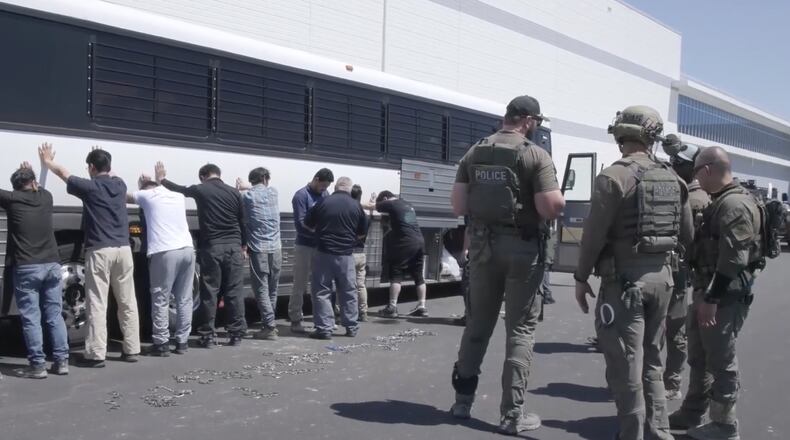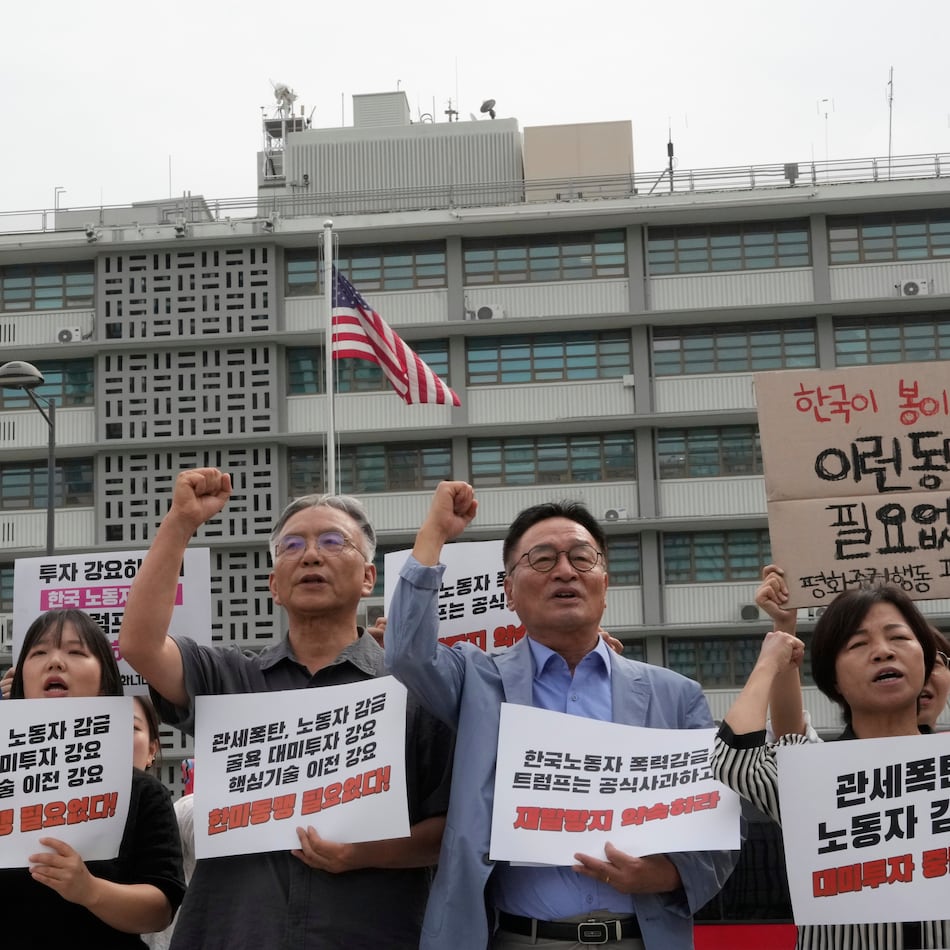Do you feel safer?
Because Georgians deserve to feel safe — and I’m wondering whether the policies our government has been implementing, both federal and state, are actually making us safer.
As the recent ICE raids at the Hyundai plant in coastal Georgia have shown, much of the Trump Administration’s attempts at public safety have come in the form of aggressive deportation.
A lot of taxpayer money has been dedicated to this purpose, too, to the tune of $75 billion for ICE (and $170 billion overall for deportation and border security) in the “One big beautiful bill.” And a great deal of this public money is, in fact, going to private businesses: Think Alligator Alcatraz, and the expansion of the Folkston detention facility here in Georgia, which will make it the largest detention facility in the United States, by the end of it all.
However, as of right now, over 70% of current detainees don’t have any criminal convictions (and those that do often have it or minor traffic violations).
Don’t turn a blind eye to public prison system problems
Credit: Cam Ashling
Credit: Cam Ashling
Equally interesting is what’s not getting funded — including our public prisons. I sit on the Public Safety subcommittee for the House Appropriations Committee of the Georgia General Assembly — which, in recent years, has been faced with the crisis of our public prisons. Guidehouse, the consultant Gov. Brian Kemp hired to study and provide solutions, produced a 245-page report laying out exactly how much of a crisis this is.
Despite that, while the state put some funding into these prisons this year, we haven’t — and with funding cuts will almost certainly not soon — put anywhere near the full $800 million-plus it will take to bring these prisons up to snuff. Yet, the state did put in another $172 million of funding for private prisons — which, to be clear, do not house our most challenging prison populations. One of the prison businesses Georgia funds, CoreCivic, is also federally funded to run Stewart, the other ICE detention facility in Georgia.
Sitting on this subcommittee, I hear all the time that funding prisons is not sexy, which is partly what leads to shorter-term “fixes” like private prisons.
But even if you didn’t care about the experiences of our prisoners, we cannot turn a blind eye to the fact that these prisons absolutely impact the world outside of it. Much of gang and other organized criminal activity — including that which decimates communities like mine — are absolutely being run of our public prison system, so ill-equipped is that system to stop contraband and other ways that allow most-violent offenders to continue engaging in this activity even when locked up.
Would funding that, instead of deportation, make us safer?
Government fails to invest in people to divert them from crime
In stark contrast to private businesses benefiting from our prison-industrial complex, the Department of Justice has also terminated millions of dollars in already-ongoing grants for nonprofits implementing community violence intervention programs, providing services for those affected by domestic violence, and other crime-reduction endeavors.
In disclosure, that includes one of my nonprofit’s grants for neighborhood level interventions around crime (something we’re still doing, if with far less funding; it also inspired my and Rep. Lupton’s House Bill 915 to designate civilian community responders). Beyond that, one of the biggest grants cut nationally was to a program that has had widespread bipartisan support in Georgia: the Court Appointed Special Advocates (or CASA) program, which trains volunteers to support abused and neglected children in front of our judicial system, with the goal of diverting those children toward safety and away from life surrounded by crime.
Over the long term, investing in preventive human services will save us far more money than enforcement, imprisonment, or deportation. Easier to ensure a child doesn’t go down the wrong path than stopping them on that path later. Better to invest in school counselors than contracting with private businesses that profit from hardening schools into prisonlike environments.
Regarding neighborhood-level conditions, there’s one other financial beneficiary of our current policies, in a different category of for-profits: The worst apartment complexes, institutional investors in housing, and other commercial investors, which often — like in my neighborhoods — facilitate local conditions that create crime. My constituents and I perpetually play whack-a-mole with these problems, and there’s no end in sight, because far from holding them accountable, policies like the “One big beautiful bill” at the federal level, and tort “reform” of so-called premises liability in Georgia, will only put more money in their pockets.
So: The government is failing to invest in people to divert them from crime. In community infrastructure that could divert crime. And even in public structures like prisons that, if we properly invested in them, could do the most to prevent crime, which is still happening even once people have been removed from society — just like deportations do.
Instead, government is creating conditions for more crime to occur — and letting private businesses profit from it.
Not surprisingly, I personally don’t feel safer. Do you?
Marvin Lim, D-Norcross, is a state representative for House District 98 and an attorney. He is also CEO/Founder of the nonprofit Lucky Shoals Community Association, Inc.
About the Author
Keep Reading
The Latest
Featured




